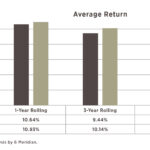Having a plan for when a disaster strikes your home can greatly impact your family’s safety. However, creating a plan for a natural disaster can be challenging due to the multiple steps involved. In this guide, we will outline the steps to prepare for a potential natural disaster.
1. Create a Family Emergency Plan
Every household needs to create a customized plan that addresses the specific risks of their area and home. For example, if you own a property in a flood-prone area, there is a higher risk of water flooding into your basement or the first floor of your home. To protect yourselves from water in your home, you might want to develop a plan that involves disconnecting utilities and seeking higher ground, and in severe cases, evacuating your house.
In the event of an evacuation, you and your family should have a written plan that details evacuation routes, how to help family members in need, gathering pets, and where to meet if separated.1 The document should also include information such as each family member’s name, date of birth, Social Security number, any medical conditions, and medical insurance policy number. Each family member should also have an emergency contact card with the contact information of other family members and a trusted person who lives out of town. This information will be useful for the family to communicate with each other and for first responders in case someone is injured and needs to go to the hospital.
2. Prepare a Kit
In the event of a disaster, your home may be without electricity and running water for several days. It’s essential to have an emergency kit prepared with food, water for drinking, and sanitation. Here are some items to include in your disaster kit:
- Water (A gallon of water per person per day)
- Food (A multi-day supply of non-perishable items)
- Can opener
- Infant formula
- Battery-powered radio for weather alerts
- Flashlight
- Blankets
- Candles
- Firewood (if you live in an area that has winter storms)
- First aid kit
- Personal and feminine hygiene supplies
- Fire extinguisher
- Dust mask (for debris and/or fires)
- Whistle (to use to signal for help)
- Wrench or pliers (to turn off utilities)
- Backup batteries for electronics
3. Organize Important Documents
Losing or not knowing where to find important documents after a disaster strikes can significantly delay the rebuilding process both literally and figuratively. Before a disaster, you should conduct an inventory of your most important documents. Federal Emergency Management Agency (FEMA) states that you should collect the following records:2
- Birth certificates, marriage certificates, death certificates, and adoption papers
- Passports, driver’s licenses, state IDs, and Social Security cards
- Will and estate planning documents
- Photos of insured valuables (e.g. jewelry, art, furnishing)
- Deed, mortgage, lease, and loan papers
- List of medication, allergies, and medical equipment
- Bank, retirement, investment, and credit card account information and contact number
- Contact information for doctors, creditors, insurance companies, and utilities
- Pet records such as vaccinations, ID tags, and veterinarian information
- Emergency cash
After organizing these items, it’s important to decide how you’d like to store them. To ensure that your items are properly backed up, consider keeping both physical and digital copies. Physical copies can be stored in a fireproof and waterproof locked file box, a bank safe deposit box, or with a trusted friend or relative. For digital copies, you can use a flash drive or a password-protected cloud account. Additionally, you can set up multi-factor authentication for added security on the cloud account.
4. Know Where to Go for Help
After a natural disaster or emergency is declared, FEMA is deployed to assist communities in getting back on their feet. They offer financial resources for disaster survivors, such as temporary housing and funding for repairs, as well as emotional resources like crisis counseling, legal services, unemployment assistance, and case management. You can also seek aid from your state’s emergency assistance programs. For further advice on how to financially recover from a natural disaster, please get in touch with your advisor.
1 Make a plan | Ready.gov. (n.d.). https://www.ready.gov/plan
2 Copy that: Keep your documents safe and accessible. (2019, April 4). FEMA.gov. https://www.fema.gov/news-release/20200220/
copy-keep-your-documents-safe-and-accessible


